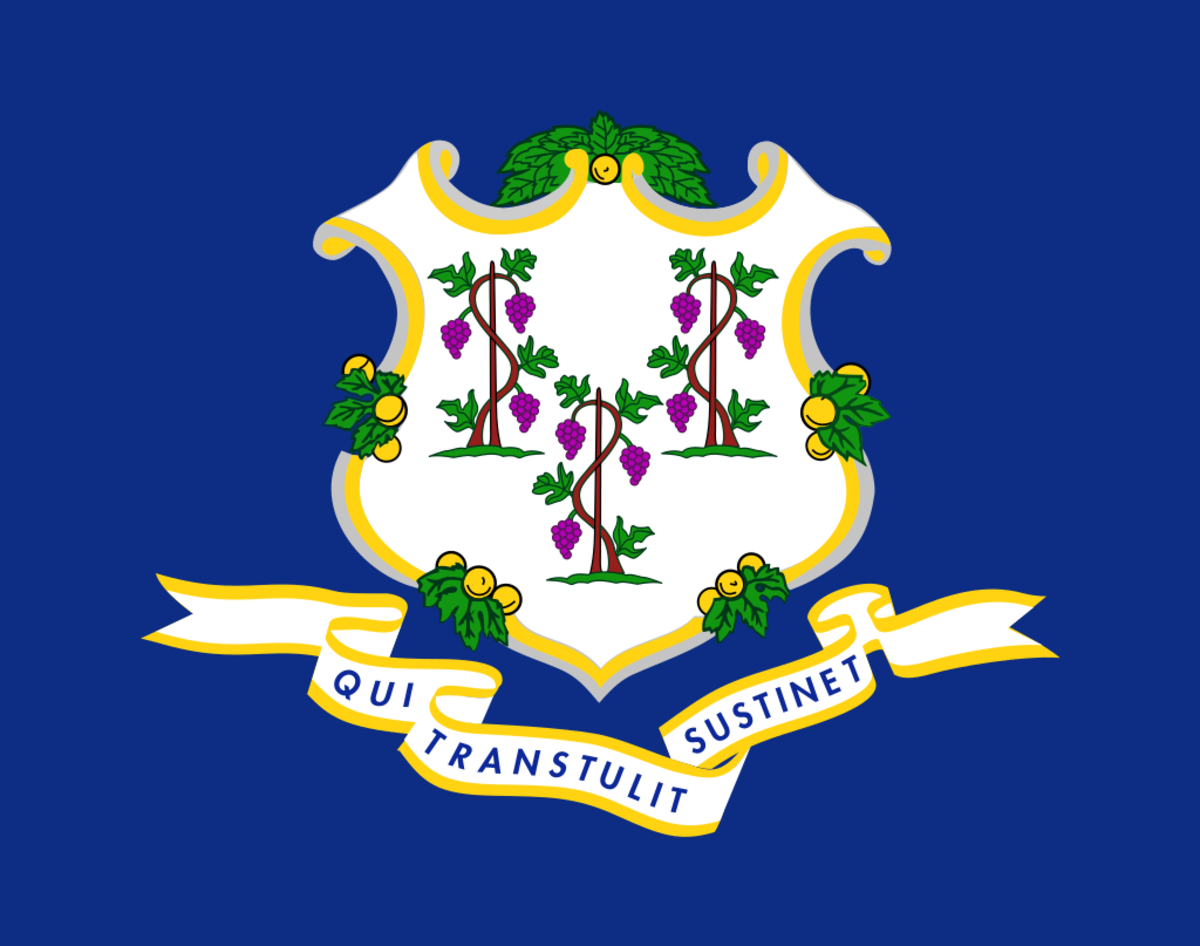Connecticut Workers’ Compensation Laws

Workplace safety is of utmost importance to guarantee the well-being of employees across different businesses. However, accidents can still happen, resulting in injuries that might reduce employees’ productivity and affect their lives.
In 2021, there were a total of 39,800 non-fatal workplace injuries and illnesses in Connecticut, according to the U.S. Bureau of Labor Statistics. 32,700 of these injuries and illnesses occurred in the private industry and 7,100 in the state and local government sectors. The report also showed that many cases occurred in companies or establishments involved in various activities, such as trade, transportation, and utilities; education and health services; natural resources and mining; leisure and hospitality; and manufacturing.
In line with this, the state, through the Department of Administrative Services, has implemented a workers’ compensation program to promote a safety culture in the workplace. This program provides benefits to Connecticuters who get injured while performing their duties at the workplace. It also protects employers against financial losses resulting from lawsuits filed by injured workers.
This article will discuss rules and regulations regarding workers’ compensation. It also guides injured workers, both in the private and government sectors, so that they can obtain maximum compensation for their losses.
Connecticut Workers’ Compensation Insurance Requirements
Connecticut adheres to the Workers’ Compensation Act. This law addresses issues related to workplace injuries and illnesses and benefits for which sick or injured workers may be eligible. It also establishes ways to provide these benefits, resolve disputes between employers and employees, and enforce the rights and obligations of each party involved.
The workers’ compensation law applies to individuals who are part of an employer-employee relationship or people who work under a contract or apprenticeship with an employer.
Connecticut businesses with at least one employee are mandated to carry workers’ compensation insurance. These include seasonal and part-time employees, sole proprietors, business partners, and family members employed by the company.
In general, employees who are eligible for workers’ compensation insurance benefits may not file a lawsuit against their employers or co-workers to attempt to get more compensation.
Workers’ Compensation Insurance Exceptions
The workers’ comp law in Connecticut does not cover the following types of workers:
Independent contractors
Outworkers
Casual workers
Non-regular domestic service workers
Corporate officers who opted not to be included
Students in supervised, community-based career education programs.
It also excludes employees covered by federal laws, such as maritime workers and sailors, railroad workers, and federal employees.
Penalties for Not Carrying Workers’ Compensation Insurance
The minimum fine for employers who do not carry workers’ compensation insurance is $500 per employee, or $5000, whichever is less. The maximum fine is $50,000. There is also an additional fine of $100 per day for each day of violation and up to $50,000 maximum.
The employer may also be charged with a Class D felony if they deliberately fail to carry coverage, misrepresent employees as independent contractors, or provide false and misleading information to insurance companies to lower premiums.
In addition, the Attorney General has the right to ask for injunctions to bar employers who willfully and frequently break the workers’ compensation requirements from operating in the state.
Connecticut Workers’ Compensation Benefits
Workers’ comp insurance covers an employee’s injuries incurred in a workplace accident or occupational disease. It pays for the following:
Medical: Employers or insurers are required to provide necessary medical care and prescription drugs to treat the injured worker’s injury or illness. After the initial treatment, the employee may choose their doctor from an approved list of healthcare providers.
Vocational rehabilitation: If the injured employee is not able to return to their previous type of work prior to the injury, the employer or insurer is required to provide retraining.
Disability benefits - Disabled employees can receive temporary or permanent disability benefits, depending on their case. Details will be described in the following sections.
Death benefits and burial expenses: If an employee dies due to an occupational disease or work-related accident, their surviving spouse and eligible dependents are entitled to compensation.
In Connecticut, there are two categories of workers’ compensation benefits. The first pays for the medical expenses and treatment of a work-related illness or injury. The second one is called wage-loss and indemnity benefits, which compensate for the injured worker’s lost wages and permanent disability. In addition, the benefits vary based on the extent of the injury or illness.
The state also adheres to a no-fault system of insurance, under which the employee’s disability benefits are paid by the employer regardless of fault.
Workers’ comp is also different from general liability insurance, which covers non-employee bodily injuries or death. For example, the insurance covers a client or contractor who gets injured on the company premises.
Temporary or Permanent Disability Benefits
Injured workers are entitled to receive temporary disability benefits if they earn less than before or are not able to work while recovering from their injuries or illness. The benefit will continue until the employee returns to work at full wages or if the doctor determines that the employee has reached maximum medical improvement or MMI.
After the doctor determines that the injured employee has reached MMI, the doctor will decide if the injured employee has suffered from a permanent disability. The employee will be eligible to receive additional benefits for the permanent disability.
The following table summarizes the benefits under the above-mentioned different scenarios:
How to File a Workers’ Compensation Claim in Connecticut
Employees injured at the workplace suffer circumstances that may affect their livelihood and health. It is important for them to be aware of the steps to take to be able to receive the compensation they deserve.
When Is the Deadline for Workers’ Compensation Claims in Connecticut?
Injured workers are given one year from the date of the injury to file a claim for workers’ compensation. Similarly, those who discover they have suffered from an occupational disease are given three years.
Step-By-Step Guide on Filing a Workers’ Compensation Claim in Connecticut
1. Report Your Injury or Illness to Your Employer
The employee should immediately report their injury or illness to their employer. The employer will then provide an initial medical treatment and file a First Report of Injury Form (Accident Report). The employee is required to file a 30C Claim Form (Notice of Claim for Compensation). The employer-designated physician should then render initial medical treatment and submit a medical report to the employer, insurer, and employee.
2. Continue with the Medical Treatment
Injured employees are entitled to choose their attending physician after receiving initial treatment. They should also furnish the employer with a record of doctor visits for mileage reimbursement. The employee is likewise required to sign a voluntary agreement for temporary total disability benefits.
3. Request Light Duty or Restricted Work Arrangements
After the injured employee’s medical status improves, they can request light duty or restricted work from the employer. If the attending physician determines that the restrictions are permanent, the employee may apply to WCC’s Rehabilitation Services for assistance with job placement or retraining.
4. Wait for the Approval of Workers Compensation Benefits
When the injured worker’s condition reaches maximum medical improvement, they should contact the employer or the insurer. This is to discuss an agreement on PPD benefits in case the worker incurs permanent physical impairment. If the worker’s compensation is approved by the insurer, then they should sign a voluntary agreement for PPD benefits. Otherwise, the worker may proceed to step 5.
5. Get Legal Help if Needed
In some cases, workers’ compensation claims get denied. This is why it is important to seek legal help from experienced workers’ compensation lawyers in your area when necessary.
They assist clients in navigating the paperwork and processes involved in filing a claim or appeal. They also fight for the injured worker’s rights to ensure that they get the maximum compensation.
What Should One Do If a Workers’ Compensation Claim in Connecticut Has Been Denied?
In Connecticut, a workers’ compensation claim may be denied for the following reasons:
The employee’s injury is not work-related or their illness is a pre-existing condition.
The application has incorrect or missing information.
The deadline for filing a workers’ compensation claim has passed.
The employee engaged in illegal activity that resulted in the accident. For instance, the employee was intoxicated while working, leading to the injury.
The employer classified the employee as an independent contractor.
The injured worker may file a claim with their other insurance providers, such as their employer’s health plan provider. The injured worker should get a copy of Form 43 filed by their employer to prove their claim was denied.
The injured employee may also appeal to the WCC Compensation Review Board, which is composed of the WCC Chair and two administrative law judges. The CRB has the authority to uphold, amend, or revoke the decision of the administrative law judge.
CRB Appeal Procedure
An appeal should be made by submitting five copies of the appeal petition to the compensation commissioner. It should be filed within 20 days of the date that the award or decision was made. The commissioner will mail three copies of the petition to the CRB Chair and a copy to the parties (the appellant and their company or the insurance provider) involved within three days.
The appellant should provide CRB with the reasons of appeal within ten days of filing the appeal petition. After deliberation, the commissioner’s findings must include only pertinent facts relevant to the case, together with a summary of their conclusions and the parties’ legal contentions. A memorandum of decision that indicates the commissioner’s arguments, thoughts, justifications, and beliefs may also be filed.
If the appellant wants to have the commissioner’s findings corrected, they should file a motion for the correction of finding within two weeks after the finding has been filed. They should also provide a transcript of the evidence.
The commissioner will then give notice to the concerned parties. The appellee has one week to furnish additional evidence relevant to the motion to correct. The grounds for appeal may indicate that the commissioner has refused to grant a motion to correct the finding or that their conclusion is legally inconsistent with the secondary facts found.
Legal Resources for Injured Workers in Connecticut
Injured Connecticut workers face legal, financial, and health crises. They have a lot of medical bills to pay, limitations with income, and encounter issues with their worker’s compensation claims.
Because of such problems, they are encouraged to seek legal help whenever they can.
The following sections provide information on various legal resources for injured workers statewide. These resources can help them with finding legal representation, seeking assistance for insurance problems, and visiting the physical offices of the appropriate government agencies.
Connecticut Bar Association
The Connecticut Bar Association is a nonprofit organization that has been advocating for the principles of law and justice since 1875. It has over 70 committees and sections that conduct more than 400 programs every year, including the Connecticut Legal Conference. It also helps low-income Connecticutians who are seeking legal assistance through Free Legal Answers. Its volunteer lawyers provide brief counsel about various civil legal matters, which involve workers’ compensation, health and disability, and employment. In addition, CBA’s website lists the association’s board-certified workers' compensation specialists. Its office is located at 30 Bank Street, New Britain, CT 06051, and its contact number is (860) 223-4400.
Connecticut Workers' Compensation Commission
The WCC is an administrative agency in Connecticut that oversees the workers’ compensation system throughout the state. It aims to ensure that injured workers recover damages to pay for lost wages and medical expenses. Some of its online services include records and information requests, coverage verification, first report of injury form submission, and Form 6B submission. WCC’s district offices are located in Hartford, Norwich, New Haven, Bridgeport, Waterbury, New Britain, Stamford, and Middletown. Individuals seeking assistance regarding workers’ compensation matters may contact WCC at 1-800-223-WORK (9675) or (860) 493-1500.
Connecticut Insurance Department
Connecticut Insurance Department protects consumer rights and regulates the insurance industry throughout the state. Consumers may send questions or comments through their website, file a complaint online or through email (insurance@ct.gov), or contact them through the Consumer Affairs Helpline at (800) 203-3447 or (860) 297-3900. CID is located at 153 Market Street, 7th Floor, Hartford, CT 06103.
Connecticut Department of Labor
The Connecticut Department of Labor strengthens the state’s workforce and protects the workers against labor law and employment violations. It also regulates labor laws and regulations that govern the employer-employee relationship. CTDOL’s office is located at 200 Folly Brook Boulevard, Wethersfield, CT 06109, and its contact number is (860) 263-6790. Inquiries may be submitted through their website.
Expertise.com StaffAuthor
Step into the world of Expertise.com, your go-to hub for credible insights. We don't take accuracy lightly around here. Our squad of expert reviewers, each a maestro in their field, has given the green light to every single article you'll find. From rigorous fact-checking to meticulous evaluations of service providers, we've got it all covered. So feel free to dive in and explore. The information you'll uncover has been stamped with the seal of approval by our top-notch experts.




